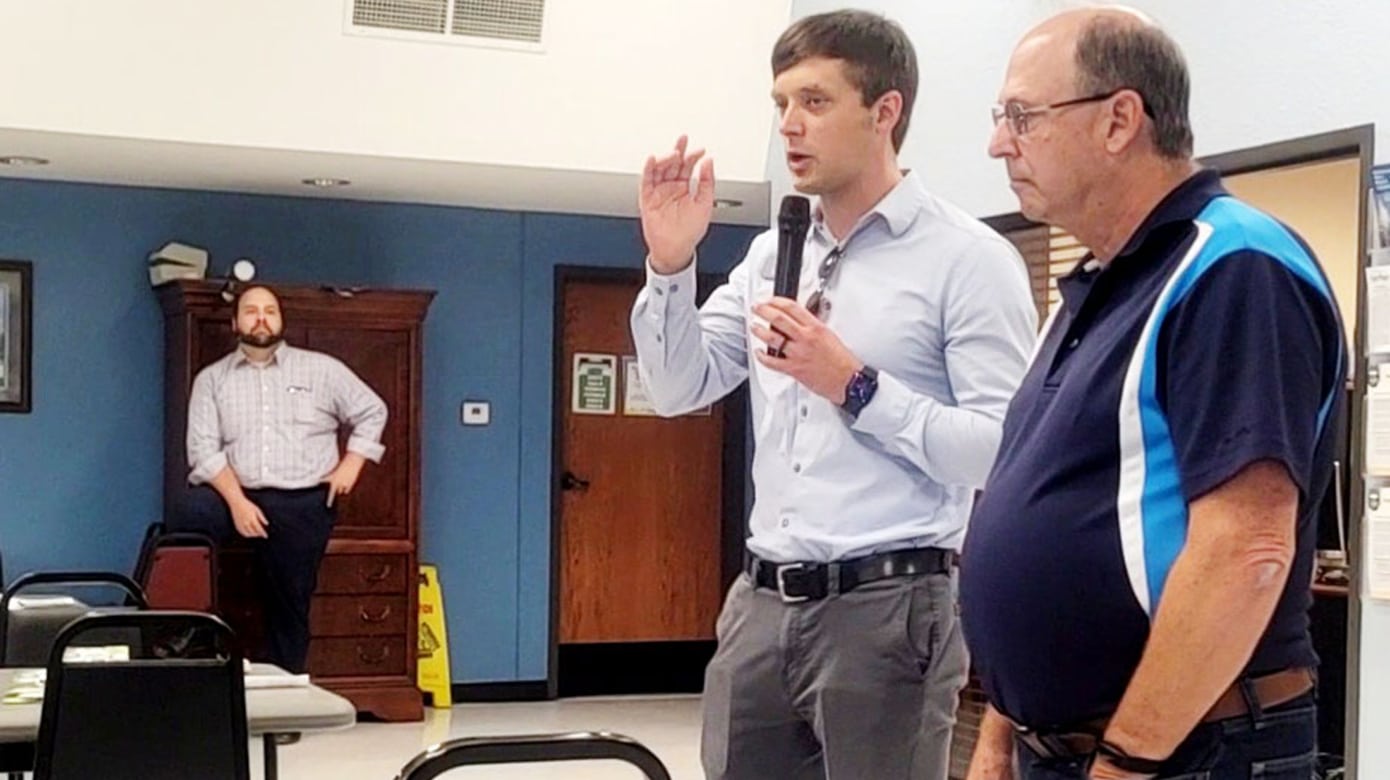Tribal members gathered at the CPN Elder Center in August to learn more about scams and how to avoid them.
“The elders in our community are often targeted by unscrupulous individuals seeking to exploit their trust and financial security,” CPN Workforce & Social Services Safe and Stable Families Counselor Jamelle Payne said.
Four professionals were on hand to present the information: CPN Postal Service Manager Tammy Phelps, David Dinsmore with Arvest Bank, Greg Arbuckle with Sovereign Bank and Daniel Lee with Legal Aid Service of Oklahoma.
“Scams are not just money. It’s not just phone calls,” Phelps said. “There are a lot of postal scams that you need to be aware of.”
She explained that many scams can come through the mail, sometimes in the form of scammers offering items for free or offering free items with a purchase.
“We all know nothing is for free,” she added.
She recommended not opening items from strangers, and especially ignoring any requests for personal information. If in doubt, she said it’s always best to talk to a friend, neighbor or other trusted individual to get advice.
“They’ve got good sales pitches,” she said of scammers. “They know you’re vulnerable. Most of you are pretty feisty, and I know you can take care of yourself. But trust me, they’re good salesmen.”
Arbuckle added that scammers often play on emotions — everything from fear to excitement.
For example, he said they might try to play on a person’s fears by pretending to be a family member in a bind who needs money, or they might try to get a person excited by offering money or prizes.
One way to combat this, he said, is to control who can see personal information.
“How many of you are on Facebook?” he asked. “If you have not set your social media to private, they can troll just like anybody else and look up what kind of family you have, who’s in the area, and they can use that to make contact with you.”
Dinsmore added that in addition to playing on emotions, scammers also urge immediate, secretive action. Anyone who wants a person to act quickly and without telling anyone else what is happening, especially if they try to make a person feel ashamed, is a red flag.
“Never be embarrassed,” he advised. “We see it all the time. Anyone can fall victim. They’re very convincing. But if they insist on immediate action and they insist on secrecy, then you should call it into question.”
Another red flag, Dinsmore said, is anyone asking for payment that is hard to trace, such as cash or gift cards.
Speaking from the legal side of things, Lee quoted the old adage, “an ounce of prevention is worth a pound of cure.”
“Once the money has left the bank account with your permission — even if you were frauded, even if they lied to you and it was criminal — there’s not a lot you can do with that,” he said. “For the most part, once it’s gone, it’s gone.”
While a person can try to sue scammers to get their money back, Lee said there are many problems with that, such as knowing who to sue.
Once money has left a person’s bank account, Lee said Legal Aid’s ability to get that money back is very limited. However, he did list some circumstances for which they can help.
“If someone takes out loans or things in your name, we can help with that,” he said. “If anyone is supposed to be handling your money and misusing it, we can help with that as well.”
He also added that they can help with bad business practices, such as contractors who agree to do work after a storm. However, he suggested caution with these encounters as well.
“Think about the things you need to sue somebody and make sure we have that,” he said. “Do you know where they’re at? Can we find them?”
And, he added, if in doubt, Legal Aid is available to all Tribal members and can give advice as well.
“We don’t just represent people in lawsuits. We also give advice,” he said. “If this feels sketchy, you can contact us just for advice. Everyone talks about them trying to play on your emotions, shutting down rational thinking … If they’re not going to give you time to talk to us, it’s not worth it.”
Ultimately, if someone does get scammed, several of the presenters emphasized the importance of reporting the information quickly.
“The more you can bring to light, the better off you will be,” Dinsmore said. “The sooner you can bring it to light, the more protected you will be.”
“If you’ve had two bank statements and you still haven’t caught it, there’s a good chance you’re not getting it back,” Lee said. “The longer you wait, the harder it is to get your money back.”
After speaking, the presenters met one-on-one with elders to answer individual questions.
Payne said he tries to put on events such as this one from time to time, especially around the holidays, as a reminder. For more information about Workforce & Social Services, visit cpn.news/wfss.

